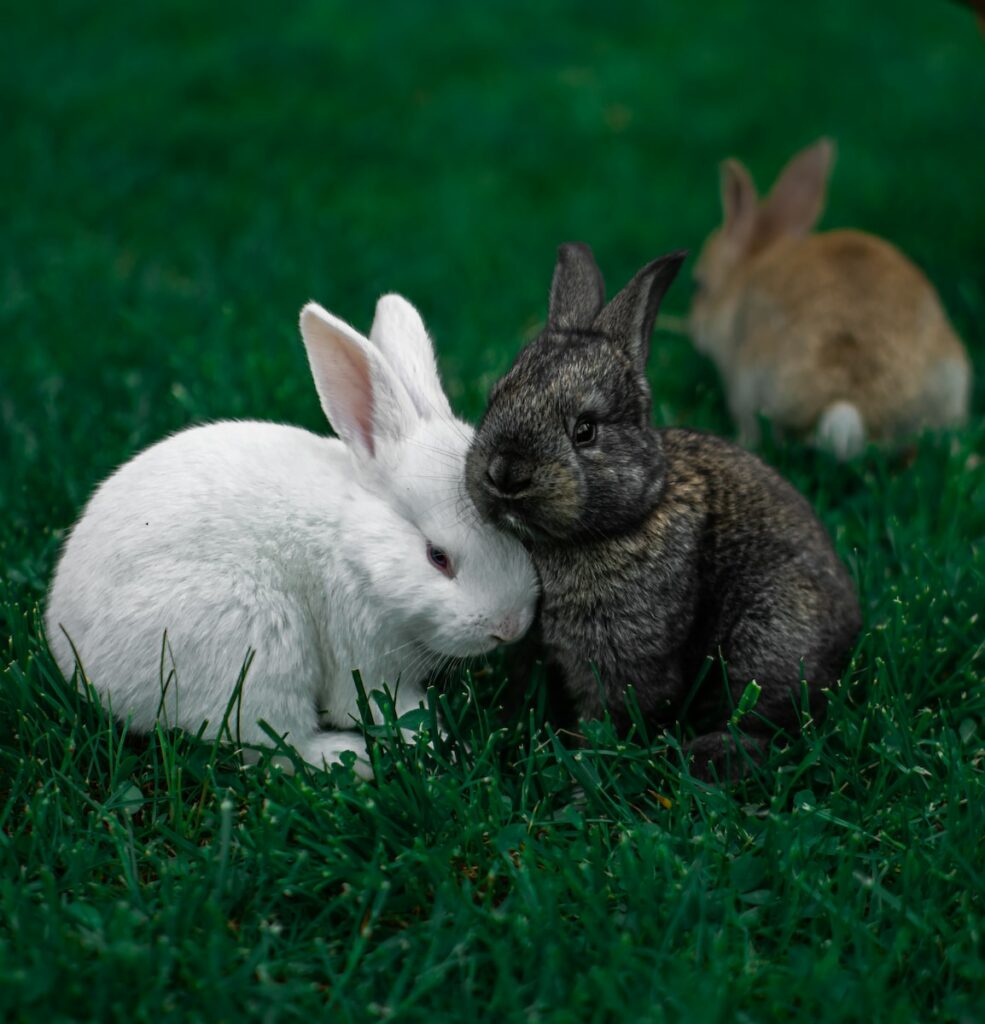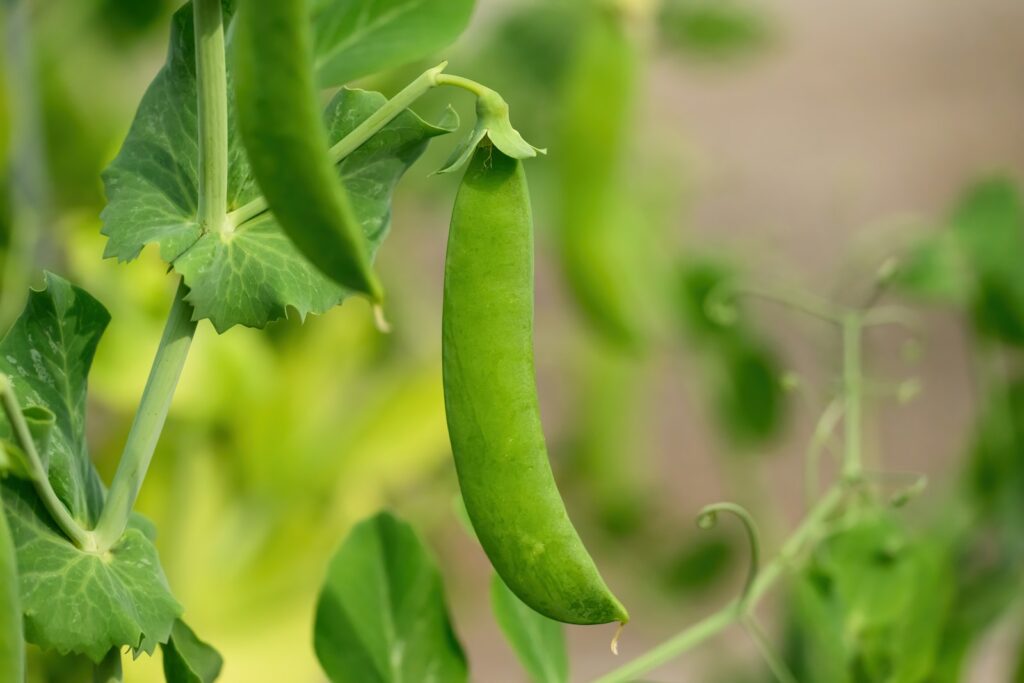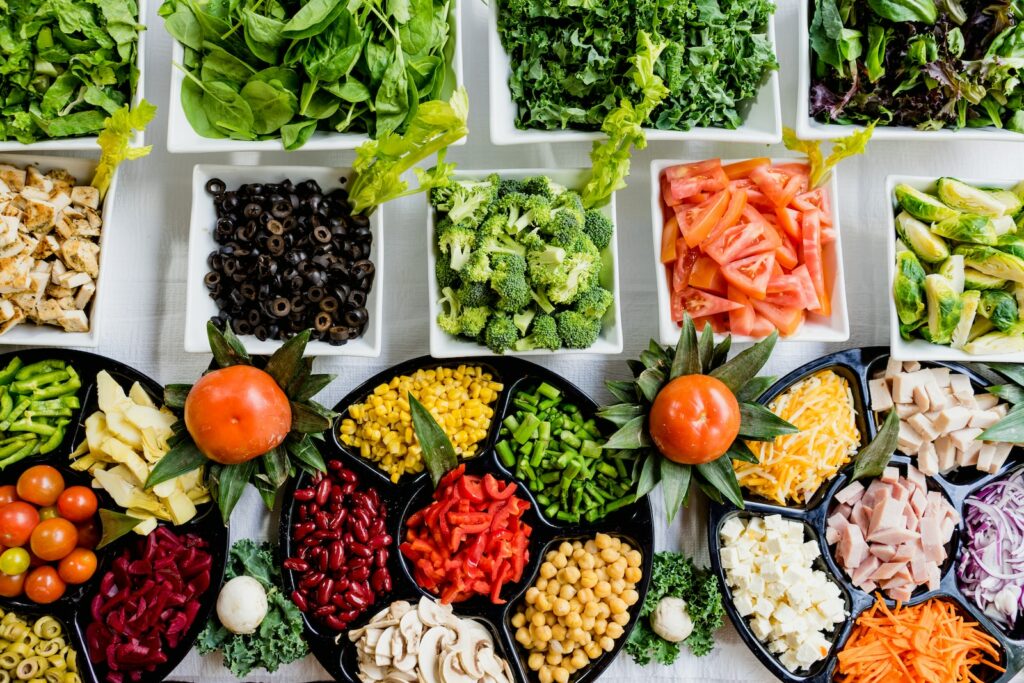
Rabbits are known for their love of vegetables. They enjoy munching on a variety of fresh produce, from carrots to leafy greens. One vegetable that may catch a rabbit owner’s eye is the sugar snap pea. But can rabbits eat sugar snap peas?
Sugar snap peas are a type of pea that is eaten whole, including the pod. They are a good source of vitamins and minerals, such as vitamin C and iron. However, rabbits have specific dietary needs, and not all vegetables are safe for them to eat.
It is important to know what foods are safe for rabbits to eat to ensure their health and well-being. In this article, we will explore whether sugar snap peas are a suitable addition to a rabbit’s diet. We will examine the nutritional value of sugar snap peas, as well as any potential risks or concerns associated with feeding them to rabbits.
Table of Contents
What Are Sugar Snap Peas?

Sugar snap peas are a type of legume that are commonly grown in gardens and are known for their sweet and crunchy taste. They are part of the green pea family and are a cross between snow peas and garden peas. Sugar snap peas are often eaten raw as a snack or added to salads, but they can also be cooked and used in a variety of dishes.
Sugar snap peas are a great addition to any organic garden, as they are easy to grow and require minimal maintenance. They are typically planted in the cool seasons and can be harvested in just a few weeks. There are several different legume cultivars of sugar snap peas available, each with its own unique flavor and texture.
One of the benefits of sugar snap peas is that they are a good source of nutrients, including vitamin C, fiber, and protein. They are also low in calories and fat, making them a healthy snack option. When purchasing sugar snap peas, it is best to look for organic options to ensure that they are free from harmful pesticides and other chemicals.
Overall, sugar snap peas are a delicious and nutritious addition to any diet. Whether eaten raw or cooked, they are sure to provide a satisfying crunch and a burst of flavor.
Nutritional Value of Sugar Snap Peas
Sugar snap peas are known for their sweet taste and crunchy texture. They are also a great source of nutrition and are low in calories. Here’s a breakdown of the nutritional value of sugar snap peas:
- Nutrition: Sugar snap peas are a good source of nutrition. They are low in calories and high in fiber, making them a great snack option for those who are trying to lose weight.
- Vitamins: Sugar snap peas are rich in vitamins. They are a good source of vitamins A and C, which are important for maintaining healthy skin, eyes, and immune system.
- Minerals: Sugar snap peas are also rich in minerals. They are a good source of iron, which is important for maintaining healthy blood cells, and calcium, which is important for maintaining healthy bones.
- Fiber: Sugar snap peas are high in fiber, which is important for maintaining a healthy digestive system. Fiber also helps to keep you feeling full, which can help with weight loss.
- Protein: Sugar snap peas are a good source of protein, which is important for building and repairing tissues in the body.
- Vitamin C: Sugar snap peas are a great source of vitamin C, which is important for maintaining a healthy immune system.
- Vitamin K: Sugar snap peas are also a good source of vitamin K, which is important for maintaining healthy bones and blood clotting.
- Calcium: Sugar snap peas are a good source of calcium, which is important for maintaining healthy bones and teeth.
- Potassium: Sugar snap peas are a good source of potassium, which is important for maintaining healthy blood pressure.
- Manganese: Sugar snap peas are also a good source of manganese, which is important for maintaining healthy bones and skin.
- Magnesium: Sugar snap peas are a good source of magnesium, which is important for maintaining healthy muscles and nerves.
Overall, sugar snap peas are a nutritious and delicious snack option. They are low in calories, high in fiber, and rich in vitamins and minerals.
Health Benefits of Sugar Snap Peas for Rabbits
Sugar snap peas are a great addition to a rabbit’s diet due to their various health benefits. These crunchy and sweet vegetables are rich in fiber, vitamin C, iron, vitamin K, calcium, and potassium, making them a nutritious and tasty treat for rabbits.
One of the main benefits of sugar snap peas is their high fiber content. Fiber is essential for a rabbit’s digestive health as it helps to maintain gut motility and prevent gastrointestinal problems such as diarrhea and bloating. Sugar snap peas are also low in calories and fat, making them a healthy snack option for rabbits.
In addition to fiber, sugar snap peas are a good source of vitamin C, which is important for a rabbit’s immune system and overall health. Vitamin C also helps with the absorption of iron, which is another nutrient found in sugar snap peas. Iron is necessary for the production of red blood cells and helps to prevent anemia in rabbits.
Sugar snap peas are also rich in vitamin K, which plays a crucial role in blood clotting and bone health. Calcium and potassium are two other minerals found in sugar snap peas that are important for maintaining strong bones and muscles in rabbits.
Overall, sugar snap peas are a nutritious and beneficial addition to a rabbit’s diet. However, it is important to remember that they should be given in moderation and as part of a balanced diet that includes hay, fresh vegetables, and a limited amount of pellets.
Feeding Sugar Snap Peas to Rabbits
Sugar snap peas are a tasty and nutritious treat that many rabbits enjoy. However, it is important to feed them in moderation and introduce them slowly to avoid any digestive issues.
When feeding sugar snap peas to rabbits, it is important to make sure they are fresh and clean. Wash them thoroughly before feeding to remove any dirt or pesticides that may be present. It is also important to introduce them slowly, starting with a small amount and gradually increasing the serving size over several days.
While sugar snap peas are generally safe for rabbits to eat, it is important to feed them in moderation. Too many peas can cause digestive issues such as bloating or diarrhea. As an occasional treat, sugar snap peas can be a healthy addition to a rabbit’s diet.
Variety is important in a rabbit’s diet, and sugar snap peas can provide a simple and easy way to add some variety to their meals. However, it should not be the only vegetable they are fed. A balanced diet should consist of a variety of vegetables, hay, and pellets.
In summary, sugar snap peas can be a safe and nutritious treat for rabbits when fed in moderation and introduced slowly. Remember to wash them thoroughly before feeding and incorporate them as part of a balanced diet.
Risks and Precautions
While sugar snap peas are generally safe for rabbits to eat, there are some risks and precautions to keep in mind.
Firstly, it is important to note that too many sugar snap peas can lead to digestive upset and diarrhea in rabbits. It is recommended to feed them in moderation and as part of a balanced diet.
Additionally, it is important to avoid feeding rabbits sugar snap peas that have been treated with pesticides or other harmful chemicals. These can be toxic to rabbits and cause serious health problems.
Another risk to consider is choking hazard. Sugar snap peas should be cut into small pieces to prevent rabbits from choking on them.
Furthermore, rabbits with a history of digestive problems or intestinal upsets should be monitored closely when introducing sugar snap peas into their diet. These rabbits may be more susceptible to digestive issues or constipation.
Overall, while sugar snap peas can be a healthy and tasty addition to a rabbit’s diet, it is important to feed them in moderation and take necessary precautions to avoid any potential risks.
Alternatives to Sugar Snap Peas
While sugar snap peas are generally safe for rabbits to consume, it’s always good to have some alternatives to keep their diet varied and interesting. Here are some other vegetables that rabbits can eat:
Green Vegetables

Green vegetables are great for rabbits as they are high in fiber and low in calories. Some examples of green vegetables that rabbits can eat include:
- Brussels sprouts: These cruciferous vegetables are high in vitamin C and fiber. They should be fed in moderation as they can cause gas in some rabbits.
- Kale: This leafy green vegetable is rich in vitamins A, C, and K. It should be fed in moderation as it contains calcium oxalate, which can cause bladder stones in some rabbits.
- Mustard greens: These leafy greens are high in fiber and low in calories. They are also a good source of vitamin C.
Other Vegetables
In addition to green vegetables, there are other vegetables that rabbits can eat. Some examples include:
- Carrots: These root vegetables are high in fiber and vitamin A. They should be fed in moderation as they are high in sugar.
- Green peas: These legumes are high in protein and fiber. They should be fed in moderation as they are high in starch.
It’s important to note that while these vegetables are safe for rabbits to consume, they should still be fed in moderation as overfeeding can lead to digestive issues. It’s also important to introduce new vegetables slowly to avoid upsetting your rabbit’s digestive system.
Conclusion
In conclusion, sugar snap peas can be a beneficial addition to a domestic rabbit’s diet when given in moderation. They are a good source of fiber, vitamin C, and other essential nutrients. However, it is important to remember that rabbits require a balanced and healthy diet consisting mainly of hay, fresh vegetables, and a limited amount of pellets.
While sugar snap peas are digestible for rabbits, it is recommended to introduce them slowly and monitor their digestive health. Overfeeding sugar snap peas or any other type of treat can lead to gastrointestinal issues and obesity in rabbits.
It is also important to note that not all rabbits may enjoy or tolerate sugar snap peas, so it is best to offer them in small amounts and observe their reaction. If a rabbit shows signs of discomfort or digestive issues after consuming sugar snap peas, it is best to discontinue feeding them.
Overall, sugar snap peas can be a nutritious and enjoyable addition to a rabbit’s diet when given in moderation and as part of a balanced diet. As with any new food, it is important to introduce them slowly and monitor the rabbit’s health and behavior.